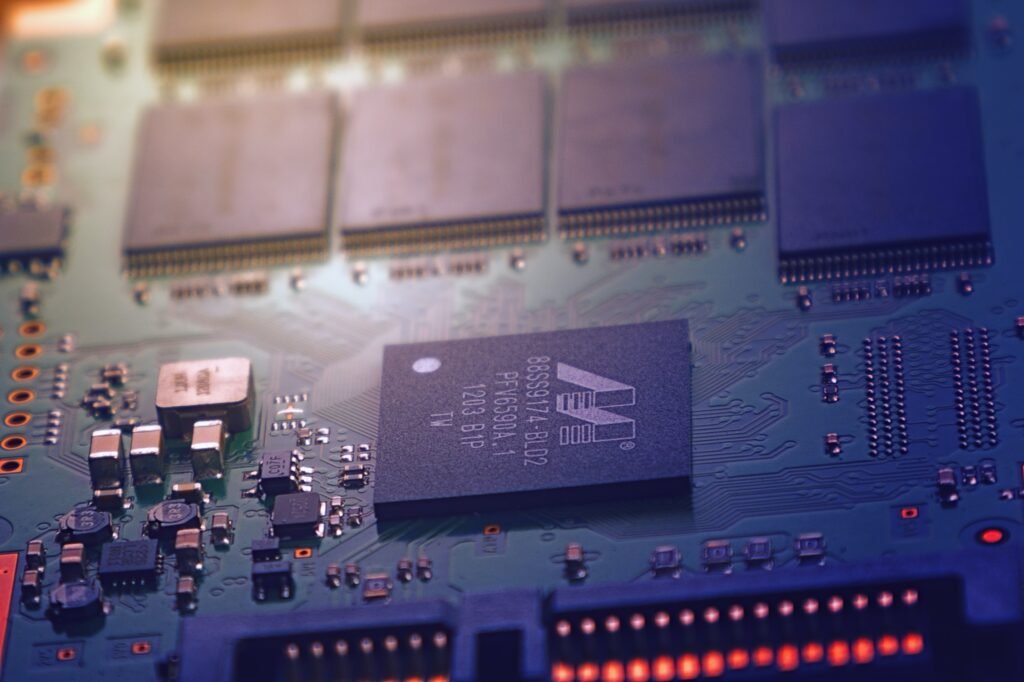In a world where technology continues to evolve at an unprecedented rate, it’s essential to equip yourself with the necessary tools and knowledge to prepare for the rise of artificial intelligence (AI). Whether you’re a business professional, a student, or simply curious about the future, understanding how to navigate this technological landscape can give you a competitive edge. From staying updated on AI advancements to developing critical thinking skills, this article will guide you on how to prepare for the inevitable integration of AI into our everyday lives. So, let’s embark on this exciting journey together and get ready for the future!
Understanding Artificial Intelligence
Defining Artificial Intelligence
Artificial Intelligence (AI) refers to the development of computer systems that possess the ability to perform tasks that would typically require human intelligence. These systems are designed to learn from data, recognize patterns, and make decisions or predictions. AI can be classified into various categories based on the degree of human-like intelligence they exhibit.
Types of Artificial Intelligence
There are four primary types of AI:
-
Reactive machines: These AI systems do not have memory and can only react to specific situations. They don’t possess the ability to learn from past experiences. Examples include IBM’s Deep Blue chess-playing computer.
-
Limited memory machines: Unlike reactive machines, limited memory machines can learn from historical data to improve future decision-making. Self-driving cars and virtual personal assistants fall under this category.
-
Theory of mind AI: This type of AI is capable of understanding emotions, beliefs, and intentions of human beings, which allows them to interact on a more human-like level. However, theory of mind AI is still largely in the research phase.
-
Self-aware AI: Currently purely hypothetical, self-aware AI would have consciousness and self-awareness, similar to human beings. However, this level of AI is purely theoretical and not yet attainable.
Impacts of Artificial Intelligence
The development and integration of AI have the potential to impact various aspects of our lives, including:
-
Automation: AI can automate repetitive and mundane tasks, leading to increased efficiency and productivity in various industries.
-
Improved decision-making: AI systems can analyze vast amounts of data and provide valuable insights, aiding in better decision-making processes.
-
Personalization: AI algorithms can tailor products and services to individual preferences, enhancing customer experiences.
-
Medical advancements: AI applications in healthcare can lead to improved diagnostics, drug discovery, and personalized treatments.
-
Job disruptions: AI has the potential to automate certain job roles, leading to job displacement and requiring workers to adapt and acquire new skills.
Adapting to the AI Era
Recognizing the Need for Adaptation
As AI continues to advance and integrate into various industries, it is crucial for individuals to recognize the need for adaptation. Embracing AI technology and acquiring the necessary skills can help individuals thrive in the AI era.
Benefits of Preparing for AI
Preparing for AI comes with numerous benefits, including:
-
Increased employability: Acquiring AI-related skills can open up new job opportunities in emerging industries.
-
Higher earning potential: Skilled professionals in AI-related fields often command higher salaries due to the demand for their expertise.
-
Improved job security: Adapting to the AI era ensures that individuals remain relevant and employable in an evolving job market.
Challenges in Adapting to AI
While preparing for AI offers numerous benefits, there are also challenges that individuals may face, such as:
-
Lack of awareness: Many individuals may not fully understand the potential impact and requirements of AI, which can hinder their ability to adapt effectively.
-
Technological barriers: Some individuals may face difficulties in understanding and utilizing AI tools and technologies due to a lack of technical knowledge.
-
Fear of job displacement: The fear of AI causing job losses can create resistance and reluctance to adapt, preventing individuals from embracing the AI era.
The Importance of a Growth Mindset
Cultivating a growth mindset is essential in adapting to the AI era. Embracing a mindset focused on learning, growth, and embracing change allows individuals to continuously develop new skills and stay ahead in a rapidly evolving technological landscape.

Developing Technical Knowledge
Learning About Machine Learning
Machine learning is a subset of AI that focuses on enabling systems to learn from data and improve their performance without explicit programming. Understanding the basics of machine learning algorithms, such as decision trees, neural networks, and support vector machines, is essential for individuals looking to work with AI.
Understanding Deep Learning
Deep learning is a specialized field within machine learning that involves training artificial neural networks to perform complex tasks. Deep learning algorithms have fueled significant advancements in areas such as image recognition and natural language processing. Gaining a foundational understanding of deep learning concepts and techniques can greatly contribute to AI expertise.
Exploring Natural Language Processing
Natural Language Processing (NLP) deals with interactions between computers and human language. NLP algorithms enable computers to understand and interpret natural language, allowing for applications such as chatbots and language translation systems. Familiarizing oneself with the fundamentals of NLP can be highly beneficial in AI-related roles.
Mastering Robotic Process Automation
Robotic Process Automation (RPA) involves the use of software bots to automate repetitive and rule-based tasks, mimicking human interaction with digital systems. Understanding how RPA works and being able to implement and manage RPA solutions can significantly improve productivity and efficiency in various industries.
Investing in Data Science
Data science is the backbone of AI, as it involves extracting insights and knowledge from large datasets. Data scientists are responsible for cleaning, analyzing, and interpreting data to drive decision-making and develop AI models. Developing proficiency in data science techniques, including data wrangling, visualization, and predictive modeling, is crucial for AI-related roles.
Building Digital Skills
Enhancing Coding Skills
Coding skills form the foundation for working with AI technologies. Familiarity with programming languages such as Python, R, and Java is essential for developing, implementing, and managing AI algorithms and systems. Additionally, proficiency in frameworks and libraries specific to AI, such as TensorFlow and PyTorch, is beneficial.
Gaining Proficiency in Data Analytics
Data analytics involves extracting, analyzing, and interpreting data to uncover patterns, trends, and insights. Proficiency in data analytics tools and techniques allows individuals to make informed decisions based on data-driven insights, contributing to the overall success of AI endeavors.
Becoming Familiar with Cloud Computing
Cloud computing provides flexible and scalable access to computing resources, making it an indispensable component of AI infrastructure. Understanding cloud platforms, such as Amazon Web Services (AWS) and Microsoft Azure, enables individuals to leverage cloud-based AI services and resources effectively.
Acquiring Cybersecurity Knowledge
Cybersecurity is a critical aspect of AI implementation to ensure the confidentiality, integrity, and availability of data. Acquiring knowledge of cybersecurity best practices, such as data encryption, access controls, and vulnerability management, allows individuals to safeguard AI systems and mitigate potential risks.
Embracing UX and UI Design
User Experience (UX) and User Interface (UI) design are essential in creating intuitive and user-friendly AI applications. Developing skills in UX/UI design enables individuals to design AI systems that provide seamless interactions, enhancing user satisfaction and adoption of AI technologies.

Adopting an Ethical and Responsible Approach
Understanding AI Bias
AI systems, if not properly designed and trained, can exhibit biases that perpetuate unfairness and discrimination. Understanding the potential biases that can arise in AI algorithms and actively working to mitigate them is crucial for ensuring equitable and unbiased AI systems.
Ensuring Transparency in AI Systems
Transparency is vital in AI systems to build trust and understand the underlying decision-making processes. By making AI algorithms and models transparent, individuals can identify and address any biases or errors, fostering accountability and ethical AI practices.
Addressing Privacy Concerns
AI systems often deal with vast amounts of personal data, raising privacy concerns. Adhering to data protection regulations and implementing strong privacy practices, such as data anonymization and secure data storage, is essential to mitigate privacy risks associated with AI.
Creating Ethical Guidelines for AI
Establishing ethical guidelines and principles specific to AI is necessary to ensure responsible and ethical AI development and deployment. Organizations and individuals should consider factors such as fairness, transparency, and accountability when designing and implementing AI systems.
Promoting Social Impact and Sustainability
AI should be leveraged to address societal challenges and contribute to sustainable development. By focusing on the social impact and long-term sustainability of AI applications, individuals can ensure that AI technologies are used for the greater good and benefit all members of society.
Preparing for the Workforce of the Future
Identifying AI-driven Job Disruptions
The integration of AI into various industries is expected to disrupt certain job roles. It is crucial to identify which jobs are likely to be impacted by AI automation to better prepare for potential changes and opportunities in the job market.
Upskilling and Reskilling Strategies
To stay relevant and adaptable in the AI era, individuals should invest in upskilling and reskilling themselves to acquire new AI-related competencies. Continuous learning and updating of skills enable individuals to remain competitive and seize emerging job opportunities.
Embracing Lifelong Learning
AI is a rapidly evolving field, and staying up-to-date with the latest advancements and trends is essential. Embracing a mindset of lifelong learning and actively seeking opportunities to expand knowledge and skills is critical for professionals in the AI era.
Promoting Collaborative Skills
Effective collaboration is vital in the AI era, as AI and human intelligence often complement each other. Developing strong collaborative skills, such as teamwork, communication, and empathy, enables individuals to work effectively alongside AI systems and other professionals.
Navigating the Gig Economy
The rise of AI brings opportunities in the form of gig work and freelance projects. Individuals should embrace the gig economy by leveraging their AI expertise to take on independent projects and build a diversified professional portfolio.

Cultivating an Innovation Mindset
Encouraging Creativity and Experimentation
Innovation thrives on creativity and experimentation. Embracing a mindset that encourages thinking outside the box, challenging conventional norms, and taking calculated risks fosters innovative thinking and problem-solving in the AI era.
Fostering a Culture of Continuous Improvement
To leverage the full potential of AI, individuals should foster a culture of continuous improvement. Actively seeking feedback, analyzing outcomes, and identifying areas for optimization and enhancement enables individuals to refine AI systems and processes.
Implementing Agile and Lean Methodologies
Agile and Lean methodologies promote flexibility, adaptability, and iterative development, making them particularly suitable for AI projects. By adopting these methodologies, individuals can effectively manage AI initiatives and respond to changing requirements and feedback.
Embracing Disruption and Change
The AI era brings significant disruptions and changes to various industries. Embracing the inevitability of disruption and being open to change allows individuals to adapt quickly, seize new opportunities, and navigate the evolving landscape.
Collaborating with AI
Understanding Human-AI Collaboration
Effective collaboration between humans and AI systems is crucial for optimal outcomes. Understanding the strengths and limitations of AI systems and leveraging human intelligence for tasks that require creativity, empathy, and complex decision-making fosters successful human-AI collaboration.
AI Augmentation vs. Automation
AI augmentation refers to leveraging AI to enhance human capabilities and augment decision-making, while automation involves delegating tasks entirely to AI systems. Striking the right balance between AI augmentation and automation is essential for maximizing the potential of AI while preserving human value.
Leveraging AI in Decision-making
AI can provide valuable insights and assist in decision-making processes. Leveraging AI algorithms to analyze and interpret data enables individuals to make more informed and data-driven decisions, increasing efficiency and accuracy.
Creating Harmonious Human-AI Teams
Building harmonious human-AI teams requires effective communication, trust, and cooperation. Assigning roles that capitalize on the strengths of both humans and AI systems and fostering a collaborative environment paves the way for successful human-AI collaboration.
Maximizing AI’s Supportive Role
AI systems are designed to support human users, not replace them entirely. Maximizing the supportive role of AI involves utilizing AI tools and resources to enhance productivity, efficiency, and problem-solving while maintaining human oversight and control.
Investing in AI Infrastructure and Tools
Evaluating AI-Ready Infrastructure
Investing in AI infrastructure that can handle the computational requirements of AI algorithms is crucial. Evaluating factors such as processing power, storage capacity, and network capabilities ensures the scalability and efficiency of AI systems.
Choosing the Right AI Tools and Platforms
The selection of AI tools and platforms should align with specific requirements and objectives. Evaluating factors such as ease of use, compatibility with existing systems, and the availability of training and support allows individuals to make informed decisions when choosing AI tools.
Implementing Data Management Solutions
Effectively managing and organizing data is vital for AI applications. Implementing robust data management solutions, including data governance, data quality assurance, and data security measures, ensures the reliability and accuracy of AI models and predictions.
Considering Cloud-based AI Solutions
Cloud-based AI solutions offer flexibility, scalability, and cost-effectiveness. Considering cloud-based options, such as AI services provided by major cloud providers, allows individuals to leverage advanced AI capabilities without extensive infrastructure investments.
Ensuring Scalability and Flexibility
AI initiatives should be designed with scalability and flexibility in mind. Being able to adapt and scale AI systems to address growing data volumes, user demands, and changing business requirements ensures the long-term sustainability and success of AI implementation.
Staying Informed and Engaged
Following AI Trends and Developments
Staying updated with the latest AI trends, breakthroughs, and industry developments is crucial. Following reputable AI publications, research papers, and industry reports enables individuals to stay informed about emerging technologies and applications.
Engaging in AI Communities and Forums
Engaging in AI communities and forums fosters knowledge sharing, collaboration, and networking. Participating in discussions, sharing experiences, and seeking advice from fellow AI enthusiasts and professionals creates valuable connections and learning opportunities.
Attending AI Conferences and Events
Attending AI conferences, workshops, and seminars provides opportunities to learn from industry experts, witness demos of cutting-edge AI technologies, and network with like-minded professionals. These events offer valuable insights and inspiration for individuals looking to thrive in the AI era.
Building a Professional Network
Building a strong professional network in the AI field opens doors to collaboration, mentorship, and career opportunities. Actively networking with AI professionals, attending industry events, and joining relevant online platforms and communities facilitate the establishment of a diverse and supportive network.
Participating in AI-related Projects
Engaging in AI-related projects, whether personal or professional, allows individuals to apply their skills, gain practical experience, and contribute to the advancement of AI. Working on real-world projects builds a portfolio and demonstrates competence to potential employers or clients.
By following these strategies and investing in the necessary skills and knowledge, individuals can not only prepare for the AI era but also position themselves as valuable contributors to the rapidly evolving field of artificial intelligence. Adapting and embracing the opportunities presented by AI is key to thriving in the future workforce and making a positive impact in society.






